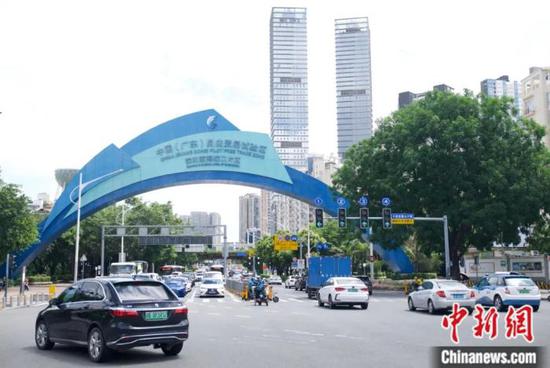
China (Guangdong) Pilot Free Trade Zone (Photo: China News Service/ Chen Wen)
By Han Yu
(CNS)--Joseph Schumpeter, an Austrian-born economist, wrote in his History of Economic Analysis, "…in ancient China, the home of the oldest literary culture of which we know. We find infact a highly developed public administration that dealt currently with agrarian,commercial, and financial problems… But no piece of reasoning on strictly economic topics has come downto us that can be called 'scientific' within our meaning of the term." The phenomenon featuring premature practice and lagging theory is what Zhang Xiaojing, director of the Institute of Finance& Bankingofthe Chinese Academy of Social Sciences, calls the "Schumpeterian question" in his new book, The China'sExperience and China'sEconomics.
Creating its own economic knowledge system not only matters to China's reviewof economic development experience and the struggle for international theoretical discourse but also adapts to the need of the times to make a more outstanding intellectual contribution to the world. In an exclusive interview with China News Agency's "W. E. Talk", Zhang Xiaojing pointed out that although China is currently successful in economic development, it is lagging in theoretical development due to factors such as the dominance of Western economic discourse and the late theoretical summary. He said that China should be confident to widely absorb knowledge based on a unique development path and sublimate the "China'sexperience" into "China'stheory", to contribute to modern economics and China's modernization.
Here are excerpts from the interview:
CNS: Mainstream Western economics has always strived to be "scientific". With the development of game theory, causal inference, and other research methods, can mainstream Western economics today be considered a science in your view?
Zhang Xiaojing: Science has its definitions and paradigms. In social sciences, economics is more like science than other disciplines because it uses many scientific methods, such as hypothetical reasoning, empirical evidence, and mathematical models.
In order to be scientific, an array of mathematical tools has been used to solve puzzles of economics. However, due to the limitations of mathematical tools, economics can only deal with "equilibrium problems" to a large extent, such as the mainstream DSGE model (dynamic stochastic general equilibrium model), which often finds equilibrium solutions and steady-state solutions through linear methods. But the reality is more complex than models, and many situations are nonequilibrium, unstable, or even "explosive". Although nonlinear models have long been proposed, they have yet to enter the mainstream because nonlinearity is more challenging to handle.
In addition to limitations oftechnical tools, the valuesare another problem. Mainstream Western economics believes that economic fluctuations are generated by exogenous shocks and denies that the capitalist system is inherently unstable. It believes that the market will eventually come to equilibrium automatically. The corresponding mainstream model, which uses mathematical methods, makes the result converge to an equilibrium solution despite of any change in conditions. Equilibrium economics and the related linearization methods ignore time and process, eliminating the richness and complexity of economic system changes, thusremoving the possibility of great depressions and crises to some extent.
Other theories, such as methodological individualism and hypothesis of rational man, have also been challenged, and mainstream Western economics is still some way fromreal science.
CNS: What lessons can China learn from shortcomings and blind spots of mainstream economics inbuildingits owneconomics?
Zhang Xiaojing: First, mainstream Western economics cannot fully represent modern economics. It seems thatChinawould fall behind if it couldn't keep up with the westerninterpretation. The guidance and dominance of Marxist political economyin China's economics, the knowledge of traditional Chinese economic thought, and non-mainstream Western economics are all necessary intellectual support for Chinese economics. With the achievements and experience gained over the past 70 years, especially the 40 years of reform and opening up, China cansay "no" to some mainstream economic dogmas.
Second, China's development experience has toucheda "sore spot" of mainstream Western economics. China has achieved rapid economic development amid long-term social stability, while some economies that followed the dogma of Western economics suffered crises again and again, which indicates thatthe Chinese experience and its theoretical logic have irreplaceable value. China's progressive reforms, which emphasize the unity of reform, development, and stability, are entirely different from the so-called "shock therapy" and the "Washington Consensus". China emphasizes the decisive role of the market in resource allocation as well as a betterrole of the government, whichare different from mainstream Western economics that blindly worships a free market economy. China's macroeconomic control, based on heterogeneity and imbalance in economics, takes advantage of structural policies, including industrial policies, whereas Western "Stabilization Policy" has always treated structural policies as market distortions. After the international financial crisis in 2008, Stephen Roach, then chief economist at Morgan Stanley, proposed to "learn from China's macro-control". Nowadays,industrial policy has become a magic weapon for the reindustrialization of advanced Western economies.
Third, China's development experience is still developing. China's economic practices neither cater to nor intentionally "go against" some foreign theories but are to ultimately solve China's practical problems. Some of these practical innovations are often the products of a particular stage of development, and it is essential to recognize the historical limitations of these practices that could "work". Thesespecial practices should be distinguished from general China's development experience that can be used for reference by international communities. As to the structural policy, for example, its effectiveness is mainly predicated on differences and disequilibrium. Overemphasizing structural policies will not only artificially divide the market but also lead to biased and discriminatory policies, which are not conducive to improving the overall efficiency of resource allocation. Aswe emphasize the construction of a large unified market, we should pay more attention to the scope of structural policies.
CNS: What's the relationship between the position of a country's economics and its economic power?
Zhang Xiaojing: The position of a country's economics is often related to its economic power. For example, the mainstream economic theories and the experience theyrely on mostlycome from developed economies, especially the United States. The mainstream Western academic journals are only interested in the "mainstream issues", namely, the issues of developed economies.Their interest in the issues of backward countries is often out of the mainstream issues. For example, it is difficult for transition economics to enter the mainstream because developed economies do not need knowledge about transition; they only occasionally pay attention to transition economics when "transition" affectsthem.
Historically, Chinese Confucianism influenced the European Physiocratic Schoolbecause China was then the most powerful country in the world. Today, studies on China's issues also increase internationally, the primary cause of which is China's growing strength: China contributes over one-third of world economic growth and more than 70% of global poverty alleviation. As China expands its international influence in the economy, its economic issues will gradually become a matter of world concern. For example, China's experience in poverty eradication will certainly rewrite development economics, and its development in Internet and financial technology will become an example of catch-up and surpassingunder a new round of technological revolution conditions, which can be written into economics textbooks.
CNS: Economics theories are inextricably linked to the reality of economic development, but why has not China, which has created a miracle of growth, enter the mainstream in economic theories yet?
Zhang Xiaojing: First, a country's economic achievements are not entirely equivalent to its academic achievements, especially its economic contributions, which are not equivalent to its theoretical contributions. There are cases whena country was strongin economic power but relatively weak in economic discourse, such as Japan at that time.
Second, China's theoretical preparation is still insufficient. The initial stage of China's economic development emphasized practicality and had notmuchenergy for theory building. At that time, the academic community followed the Soviet paradigm of political economy and lacked explanatory power in the market economy. Facing modern economics, China was still like an elementary school student at that time and wasnot able to summarize theories. Meanwhile, "transforming" traditional political economy and adapting to the development needs of social reality required a certain amount of time, which made the extraction of theorieslag behindthe tremendous social practices.
Third, we still lack confidence in summarizing the China’sexperience. The so-called mainstream is the Western mainstream, and it is not easy to get rid of the dominance of Western discourse, which makes us have no confidence in summarizing China’sexperience and telling China’sstories. We sometimes erase our innovation and edge due to the constraintof the mainstream Western discourse.
Finally, most of China's practices are unprecedented pioneering work, such as the socialist market economy, which was not envisioned by classic Marxist writers and attempted in Soviet socialist practices, and cannot be explained by Western economic theories. This requires China to sublimate such an initiative into a theory and form an independenteconomic knowledge system. Obviously, this is a long and arduous task.
CNS: What is the direction for constructing China's independenteconomic knowledge system? What is the basic methodology that should be followed?
Zhang Xiaojing: The key to constructing China's independenteconomic knowledge system is "independence".
First, getting rid of "West-centered theory" is a prerequisite for "independence". Valuing foreign things more highly than our own is to hand over the independenceof our economics to others.
Second, the unique value of China'sexperience can make usconfident in "independence". In the past, we lacked confidence in summarizing China's experience and were afraid of inconsistency with the mainstream. However, today, this "inconsistency" is precisely the value of China's experience. In terms of the paradigm of scientific development, only fresh and unique experience, which existing paradigms cannot explain, can be the real driving force and source of theoretical progress.
Third, an open system is thelifeblood of "independence". Independencedoes not mean being closed, and Chinese economics cannot be separated from the development trend of modern economics. China pursues independent development, but it will not unhook connections with the world, and its academic development cannot be separated from the world trend. The open system of Chinese economics means to accelerate the construction of China's independent economic knowledge system and make contributions to the increments of modern economics under the guidance of the Marxist political economy, especially Xi Jinping's economic thought and based on China's development experience, revolutionary tradition, and historical genes while absorbing all the important achievements of western economics.
CNS: In your book The China's Experience and China's Economics, you reviewed China's traditions in history and discussed Chinese modernization, which greatly expanded the contextfor the exploration of Chinese economic theory. Such expansion placed the exploration in the historical process during whichan ancient civilization met the industrial civilization and explored the road to modernization. What do you think is the role of Chinese economic theory in this process?
Zhang Xiaojing: What was the original purpose for the Chinese people to introduce economics? Starting with Yan Fu's translation of An Inquiry into the Nature and Causes of the Wealth of Nations, the Chinese people introduced economics in order to advance modernization.
The past 100 years have seen China's exploration of modernization and the path of Chinese economics to modernization. The theoretical construction of Chinese economics is to respond to "Schumpeter's question" and, what's more, to answer the question of the times, the people, and the world. This question is about Chinese modernization.
Chinese modernization has not only the common characteristics of modernization of all countries but also Chinese own characteristics. Throughout history, Chinese modernization has been a remarkable innovation in the modernization process of humanity over centuries. Its development philosophy, the development path, and the new form of civilization are contributions to the world. Although economics cannot fully cover these, economic modernization is the core and foundation of modernization. Providing theories and guidance to Chinese modernization is the duty of Chinese economists and what I call the "historical mission" of Chinese economists in my book. (End)
The interview record was first published on October 12, 2022, by China News Service.












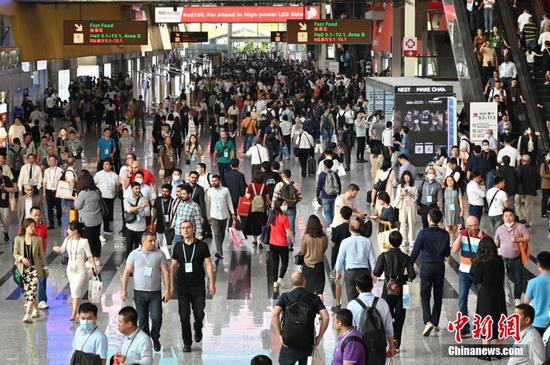
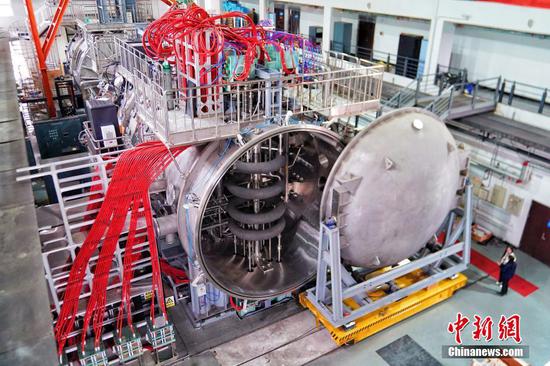







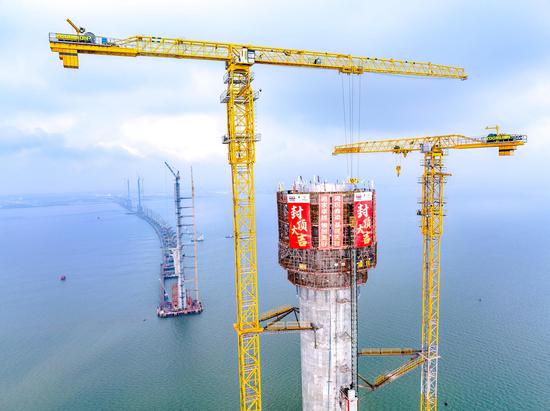

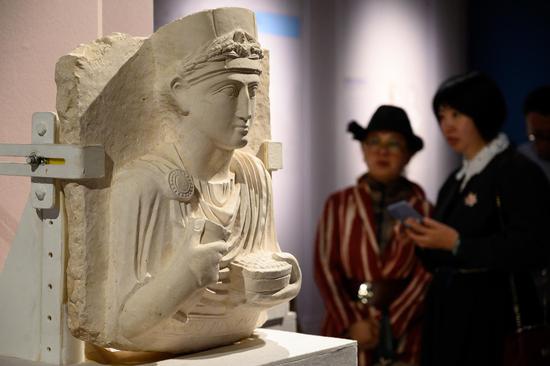




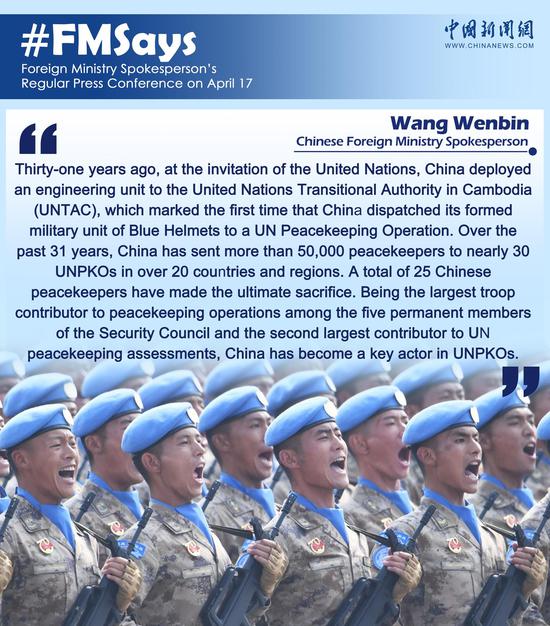

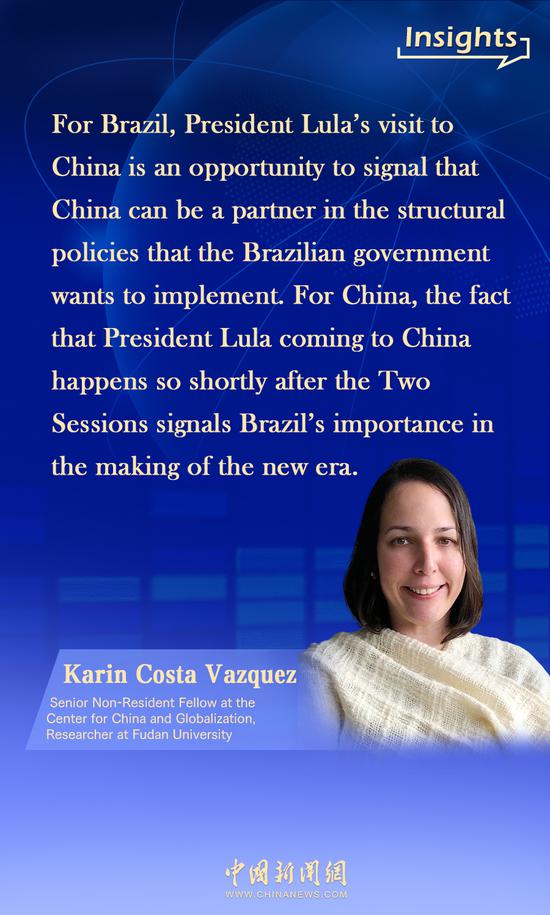



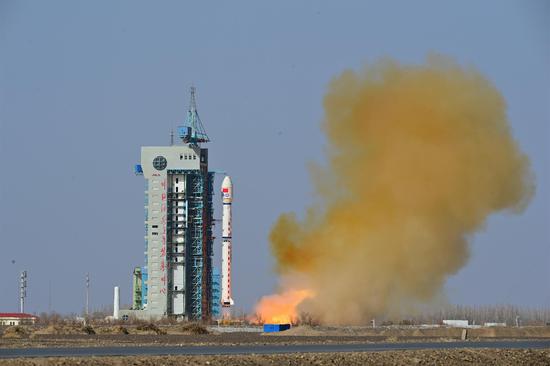






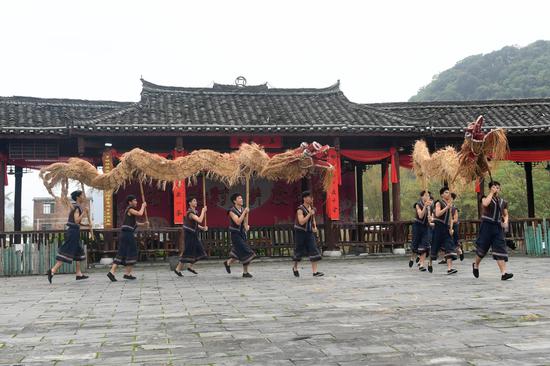
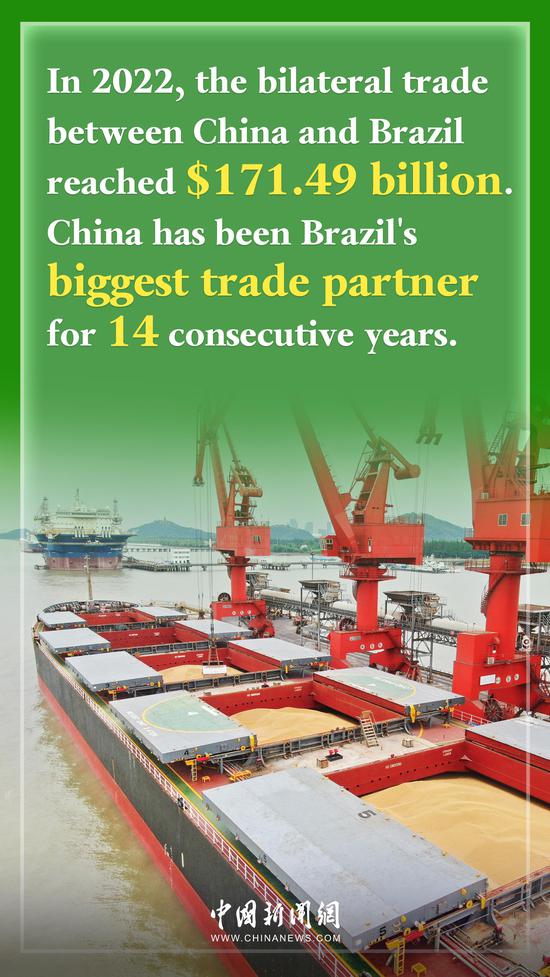
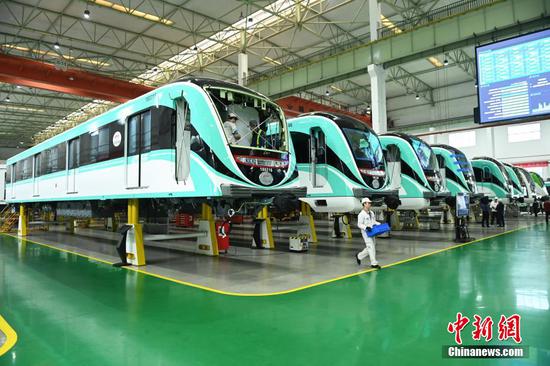






 京公网安备 11010202009201号
京公网安备 11010202009201号